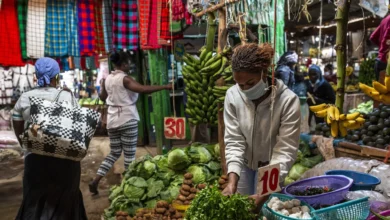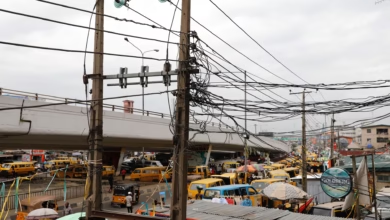
Africa’s workforce is set to nearly double by 2050, creating an urgent need for large-scale job creation to address the growing demands of the continent’s youth, many of whom have already expressed frustration through Gen-Z-led protests.
This is according to a message from the World Bank’s latest biannual report on sub-Saharan Africa. Despite these challenges, the region is demonstrating greater resilience than expected, with economic growth projected to increase to 3.8% in 2025 from 3.5% in 2024.
However, with over 600 million people expected to join the working-age population in the next 25 years—marking one of the most significant demographic shifts in recent history—Africa must rethink its growth strategy to generate meaningful employment at scale.
Andrew Dabalen, the World Bank’s chief economist for the Africa region, warned of serious consequences if these issues aren’t addressed, pointing to recent protests in Madagascar, Kenya, and Nigeria as signs of growing unrest.
In Madagascar, for instance, thousands of young people recently demonstrated against unemployment and corruption, echoing similar movements across the continent, including in Morocco.
Also Read: Kenya’s Economy to Grow Slowest in 2025 at 4%, Says World Bank
Currently, only about 24% of jobs in the region are wage-paying, forcing most new workers into low-paid, informal jobs that offer little opportunity for advancement—fueling frustration among a youthful population struggling to escape poverty.
“This should deeply concern us,” Dabalen said, cautioning that maintaining the status quo is unlikely. Creating quality jobs will require a significant shift toward larger, more productive businesses, improved business environments, and investment in workforce skills to leverage new technologies like AI.
The World Bank also emphasized the importance of attracting private investment. For example, every job in the tourism industry generates an estimated 1.5 additional jobs in connected sectors.
Nonetheless, Africa faces major obstacles, with 23 countries currently at risk of or experiencing debt distress—nearly half the continent—up sharply from just eight in 2014.
Still, there are signs of resilience with inflation easing, currencies are stabilizing, and some governments are improving fiscal management despite reduced foreign aid.
The report warned that widespread protests driven by poor job opportunities, high living costs, service shortfalls, and unpopular tax policies could undermine reform efforts and further complicate debt management.
But Dabalen said most young protesters aren’t seeking to dismantle their countries, but rather a “strong demand for better governance from the youth,” he said.






**mindvault**
mindvault is a premium cognitive support formula created for adults 45+. It’s thoughtfully designed to help maintain clear thinking
**mind vault**
mind vault is a premium cognitive support formula created for adults 45+. It’s thoughtfully designed to help maintain clear thinking
Absolutely brilliant. Thank you for this.
https://t.me/s/Top_BestCasino/157
Hello my friend! I want to say that this article is awesome, nice written and include approximately all significant infos. I’d like to see more posts like this.